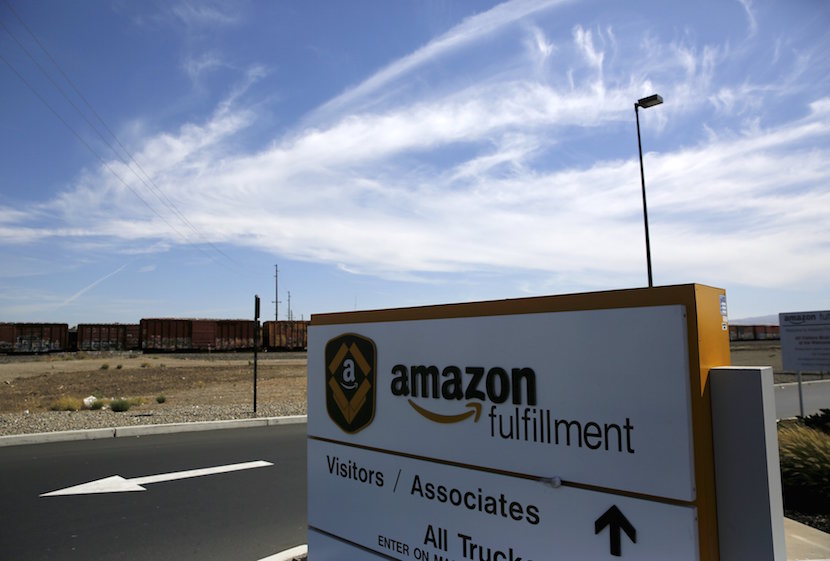We’re a little partial to Amazon.com here at Biznews. For one thing, it delivers an amazing service, giving the world simultaneous downloadable access to the freshest books. For another, the stock has been the star performer in our Biznews Global Share portfolio. So reading the hatchet job in the New York Times was uncomfortable. It looked like the newspaper found every disenchanted employee it could uncover and got them to spill their guts about a brutal, unforgiving company that treats its employees like necessary evils. Thankfully, there are two sides to even the darkest NYT expose. And last night Amazon founder and CEO Jeff Bezos added his voice to those defending the business, saying the Amazon written about was not one he would recognise. So why such different perspectives? The answer lies, perhaps, in the DNA of an Exponential Organisation like Amazon. Places where technology is embraced and increasingly used to take over roles previously filled by human beings. In that environment it’s not always easy to find the middle ground, the empathy embraced by caring corporations. – Alec Hogg

(Bloomberg Business) — Amabots and Amholes; employees sobbing at their desks; colleagues spamming the internal employee-review tool in an attempt to eject their managers from the company; cancer survivors returning to work, only to be put on “performance improvement plans.” These and other rich anecdotes made the New York Times broadside against Amazon an entertaining and brutal read, which drew a rebuke from the company’s top dog.
Amazon.com Chief Executive Officer Jeff Bezos wrote a memo to his employees last night contesting the Times article and asking anyone who witnesses such displays of corporate callousness to report it to human resources or e-mail the CEO. “I don’t recognize this Amazon, and I very much hope you don’t, either,” Bezos wrote. “I strongly believe that anyone working in a company that really is like the one described in the NYT would be crazy to stay. I know I would leave such a company.”
The Times can take at least some consolation in getting a response from Bezos. A similar depiction of the company’s cutthroat corporate culture in my 2013 book, The Everything Store: Jeff Bezos and the Age of Amazon, earned ire only from Bezos’s wife, Mackenzie, in the form of a one-star book review on Amazon. But there’s now plenty of fodder to support the narrative that the secretive beast is not always a pleasant place to work. While 82 percent of respondents on the job-search site Glassdoor say they approve of the CEO, only 62 percent would recommend a job there to a friend. That’s much lower than Amazon’s peers.
The byways of technology, particularly in Seattle, are now filled with former Amazonians who will eagerly dredge up stories of inhumane treatment. Many seem to be touched by a form of post-traumatic stress disorder. They did witness the kind of working conditions described in the Times story and burned out quickly, leaving within a year or two after they were hired and abandoning their stock options.
It’s important to note, though, that there are also many former employees and executives who will testify on Amazon’s behalf. They consider the company to be an energetic and productive place to work that doesn’t tolerate the kind of mediocrity infecting many other tech giants and that molds employees with a disruptive way of thinking. That’s why Silicon Valley startups, such as Uber, try to recruit from Amazon as much as possible—they are familiar with the demanding pace of work that’s required when you are tearing down old institutions and creating new ones in their place.
Experiences largely vary by division. The conditions described in the Times piece likely have little to do with the engineering paradise of the Amazon Web Services division or its growing Amazon Studios arm in Los Angeles. Based on my interviews with current and former employees, the pace of work actually seems to be most intense and unforgiving in the areas where Bezos himself has direct interest, such as the Kindle e- book division or the Lab126 hardware group in Cupertino, Calif.
Ultimately, though, Amazon’s culture is inseparable from its overall performance. The company is unique among its peers online and in retail for continuing to grow quickly, innovating constantly, and expanding relentlessly into new business areas. Tech companies that were started around the same time, such as AOL, Yahoo!, and EBay, have long ceased to be so dynamic. This mode of operation works for Amazon, and its high performance drives its appeal among top engineers and MBAs, who, as the Times notes, line up every Monday to join the company. They are not conscripted; they have no illusions about Amazon’s culture; and they can leave at any time.
The more serious allegation against Amazon is the way it treats sick employees and, in particular, women. One possible solution should be clear to Bezos and his top lieutenants: They need to add an entry to the company’s vaunted “leadership principles,” the 14 written values that guide new employees and mold the thinking of executives. The new 15th principle should go something like this: Have Empathy.


